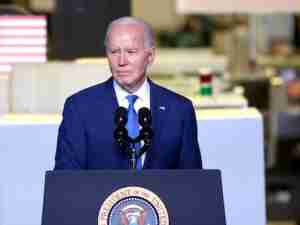President Joe Biden’s nominee for trade chief said she’d work to ensure that tariffs imposed by the Trump administration on billions of dollars of imported Chinese goods are appropriate, signaling no immediate changes to the levies.
“If confirmed, I will work with Congress to ensure that those tariffs are appropriately responsive to China’s practices; account for their impact on U.S. businesses, workers and consumers; and support the U.S. response to the Covid-19 pandemic,” Katherine Tai said in written responses to questions from senators following her confirmation hearing last week.
At her hearing, Tai said that China needs to live up to the commitments in its trade pact with the U.S.—the strongest signal yet that the new administration plans to build on the accord brokered by its predecessor rather than scrap it.
Tai received compliments from Democrats and Republicans alike and is widely expected to be easily confirmed by the Senate. Her promise of a process- and consultation-driven approach is welcomed by lawmakers after four years of chaos under Donald Trump, with tariff actions often coming as surprises announced via Twitter.
Biden last month directed his administration to identify supply-chain vulnerabilities for key goods like semiconductors and rare earths—materials where the U.S. is heavily dependent on other countries, including adversaries like Beijing.
The U.S. and China fought a trade war under Trump that continues to see tariffs applied on about $335 billion of Chinese goods annually. In the agreement reached in 2020, China promised to purchase more American products. Beijing missed its 2020 trade-deal targets as the global pandemic upended shipping and supply chains.
The White House has said the trade deal, as well as other China-related actions taken by the previous administration, are under review until the Biden team decides on a path forward.
“A comprehensive strategy to confront the China challenge will be formulated,” based on the Biden administration’s review, Tai said. “If confirmed, as part of that comprehensive review, I will assess China’s compliance with the Phase One deal to ensure it is living up to its commitments.”
China also pledged to combat the theft by Chinese companies of U.S. intellectual property and to do more to enforce IP rights in the country while also opening up its domestic market to U.S. financial service providers.
“I will not hesitate to make use of the agreement’s mechanisms when China falls short of its commitments,” Tai said in response to a question on the nation’s IP obligations from Senator Rob Portman, an Ohio Republican and former USTR.








